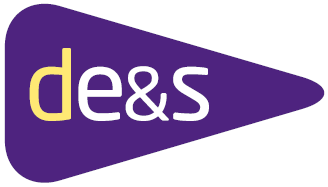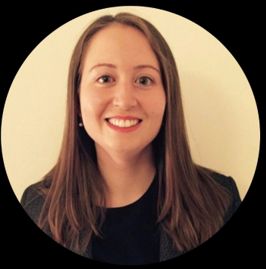DE&S Recruiters' on How to Perfect Your CV + Case Study
Category: Tips and Advice
Publish date: 07/04/2021
 Our Recruiters' Top Tips
Molly Brett – Recruiter for Project Controls & Project Management
Our Recruiters' Top Tips
Molly Brett – Recruiter for Project Controls & Project Management
“The main points I look for are formatting, clear and easy to read information, being concise and relevant to the post being applied for (as opposed to sending out master CVs for every job role).”
“Talent Acquisition initially pre-sift against the essential criteria, so this needs to be clearly highlighted in your CV. The sifters then score against key achievements, relevant experience, applied skills and knowledge. Comments I regularly get from sifters are that people haven’t applied the ‘so what’ factor or utilised the STAR (
Situation, Task, Activity, Result) technique format when writing their CVs.”
 Daryl Mazelin – Recruiter for Corporate Service Group & Finance
Daryl Mazelin – Recruiter for Corporate Service Group & Finance
“Keep your CV relevant to the advert requirements. I often find large chunks of CVs aren’t relevant to the actual job description, so I would recommend you read back through your CV and ask yourself, is this relevant?”
“Highlight your skills. Recruiters don’t want to do a deep dive into your CV to find your skillset. So, highlight your skills and make them easy to identify.”
“Key achievements. Recruiters tend to find that the majority of Service leavers never mention or highlight any key achievements. Sell yourself, it’s a key criteria that DE&S is looking for. Spend time on this section to clearly explain your achievements that are relevant to the role. This’ll increase your chances of making it through the pre-sift.”
“Avoid long paragraphs. CV sifters know what they’re looking for and if they don’t see it in first few lines, they tend to “switch off”. Take out hobbies, interests and personal circumstances - sifters don’t read them and they make your CV unnecessarily long.”
Gary Roberts - Recruiter for Integrated Logistics
“I know it’s obvious, but the easiest way to fail the pre-sift is by your CV not demonstrating, in detail, that you have all the “Essential Criteria” requested on the advert. Make sure your key achievements are included and are relevant to the role applied for. What did you do? What was the outcome/result? Why is that considered an achievement? E.g. monetary - if figures, percentages, values etc. can be shared - the better!”
“Ensure you read the advert all the way through and take note of anything mentioned in Essentials, Desirables and Responsibilities. If you’ve done any of these before, make sure they’re represented, in detail, on your CV. Keep your CV to two or three pages’ maximum. And don’t assume that everyone will understand the acronyms.”
How to write a good CV
All DE&S vacancies are filled following an interview. So, in order to give yourself the best opportunity to succeed in our recruitment process, it’s important that you submit a good quality CV. This is the first chance to sell yourself to us and show that you’re suitable for the advertised role.
Many people submit generic CVs for roles. And so we strongly recommend that you tailor your CV to the job advert, making sure that it highlights your relevant and/or transferable skills.
An effective CV will convince us that you
- Are competent, skilled and talented
- Have the ability to succeed
- Can demonstrate achievements and accomplishments
- Are motivated to deliver and are committed to continuous improvement
- Have problem solving skills and are innovative
- Are a good team player
Once you’ve submitted your application, we’ll review your CV to see if your qualifications and experience are a good match for the advertised role.
It’s important to take note of the comments and suggestions we’ve made below to give yourself the best chance of being successful during our ‘sift process’.
The particular elements within the CV that we focus on during the sift process are:
Personal profile
This is your introduction to us. You should use this area to give a brief background of yourself. Good practice is to include your current role, at least one professional accomplishment and a summary of your main skills and qualities against the job description.
Key achievements
An achievement should be something that’s quantifiable. Employers love to read through key achievements, but they’re specially interested in the impact and outcome for the organisation and yourself. So make sure to include this on the Key Achievement section of your CV.
Consider what you’ve accomplished: What situation you faced and what were the tasks? How did you approach it and what actions did you take? What was the result?
This is the opportunity to showcase your successes, how you exceeded targets or went above and beyond what was expected of you. What was challenging and significant? Between three and five examples are best practice.
Relevant experience
List your job/professional experience (starting with your present job and working back in time), highlighting to which extent they demonstrate your suitability for the advertised role. Include:
- Job title, employer’s name and dates of employment
- Your main activities and responsibilities within that role (particularly if its relevant to the advertised role)
- The main skills you used, which should be linked and relevant to the job advert
Write small paragraphs for each role and briefly explain any career gaps.
Applied knowledge and skills
This is your opportunity to really promote the skills and knowledge you gained in one role or activity and applied to others you’ve held. If you have any unique skills that’ll help you stand out from other candidates, please include them.
We’d recommend bullet pointing these skills so they’re clear and easy to read; accompanied by a brief explanation about how you acquired this skill and where and how you’ve used it.
Make sure to go through the job description to identify the specific qualities the employer is looking for so you can match these with yours. There needs to be enough information in this section to help us understand if your skills and experience are relevant and transferable to the advertised role.
Qualifications
List your professional memberships and academic qualifications in chronological order (most recent first), ensuring you’ve included those relevant to the advertised role.
In addition to the essential areas required, your CV should also include the following:
Additional capabilities
Do you have interests that carry responsibility in your personal life that highlight leadership, organisational and communications skills? Any activities or hobbies outside your scope of work? Perhaps you’re a volunteer, school governor, a scout or guide leader?
There are many activities you could list here, and it’s your final opportunity to make a positive impression on us. Always remember that you need to show skills that could be transferable to the role.
Top tips for writing a good CV
- Include your personal details/contact information
- Keep it simple and concise. A good CV should be no longer than 2-3 pages of A4 with clear headings, so that the information is well laid out
- Understand the advert and tailor your CV accordingly
- Ensure its easy to pick out the key information using active language that is clear and direct
- Use assertive, positive language (action words) such as “developed’, “organised” or “achieved”
- Write details in chronological order
- Most importantly, proof read your CV. It shouldn’t contain spelling mistakes or punctuation and grammatical errors. First impressions count, so your CV should look professional.
- Share your CV with your friends, colleagues and family, as their feedback will will help you to improve it.
- For more info on how to write a good CV visit the National Career’s Service website.
If you think you’d be the right fit for DE&S, and all of the above excites you, please head over to the CTP’s online job portal, RightJob to find our latest vacancies.
 CASE STUDY - JENNIFER ELLIS
CASE STUDY - JENNIFER ELLIS
"I missed the military and felt that the knowledge and experience I had gained was going to waste. Since being part of DE&S I feel as though my knowledge and experience from the military adds value to my role and my team."
How long did you serve (what force & job title), and when did you join DE&S?
"I served in the Royal Air Force (RAF) for 13.5 years as Personnel Support and left in 2017. I joined DE&S in 2020."
What is your role in DE&S?
"I am a Talent Acquisition Specialist, recruiting for roles in the Senior Leadership Group."
Tell me about your military career?
"I had a few different roles during my career. Human Resources Clerk, Personal Assistant to the Station Commander, Office Manager for the secretariat supporting Commander in Chief of the RAF, HR Advisor in a military hospital, and finally Recruiter and Office Manager at an RAF recruitment office.
"I completed operational tours in the Falkland Islands, Iraq, Kuwait, Oman, Dubai, and was lucky enough to travel overseas for RAF Sports to the USA, Morocco and India."
What current qualifications do you have?
"I have a Certificate in Recruitment Practice, which I completed as a recruiter in the RAF, and a CIPD Level 5 (HR Management), which I completed during my resettlement period. I’m halfway through completing a degree in English Language and Literature."
What knowledge did you have of DE&S prior to joining?
"I have been aware of DE&S my whole career and how it supports the Armed Forces, but until joining I didn’t realise how large and diverse an organisation it is."
What is it like working for DE&S?
"DE&S is a unique place to work. I enjoy how busy and varied my role can be, and have found everyone very friendly, welcoming and supportive. I like that I can quite often speak to others who are serving or ex-military as part of my role."
How do you make a difference?
"I worked for a charity as a recruiter for three years after leaving the RAF, and although this was a worthwhile role, I missed the military and felt that the knowledge and experience I had gained was going to waste. Since being part of DE&S I feel as though my knowledge and experience from the military adds value to my role and my team."
What have you learnt whilst working in DE&S?
"I’ve been given the opportunity to develop as a recruiter, with lots of training opportunities provided. I’m also applying for DE&S to fund my CIPD Level 7, which is something they offer."
What have you achieved in your time at DE&S?
"Although I haven’t been at DE&S that long, I have run several successful recruitment campaigns for the Senior Leadership Group."
What would your message be for people who are leaving (or who’ve already left) the Armed Forces?
"Make the most of all the opportunities and support offered to you during the resettlement period."